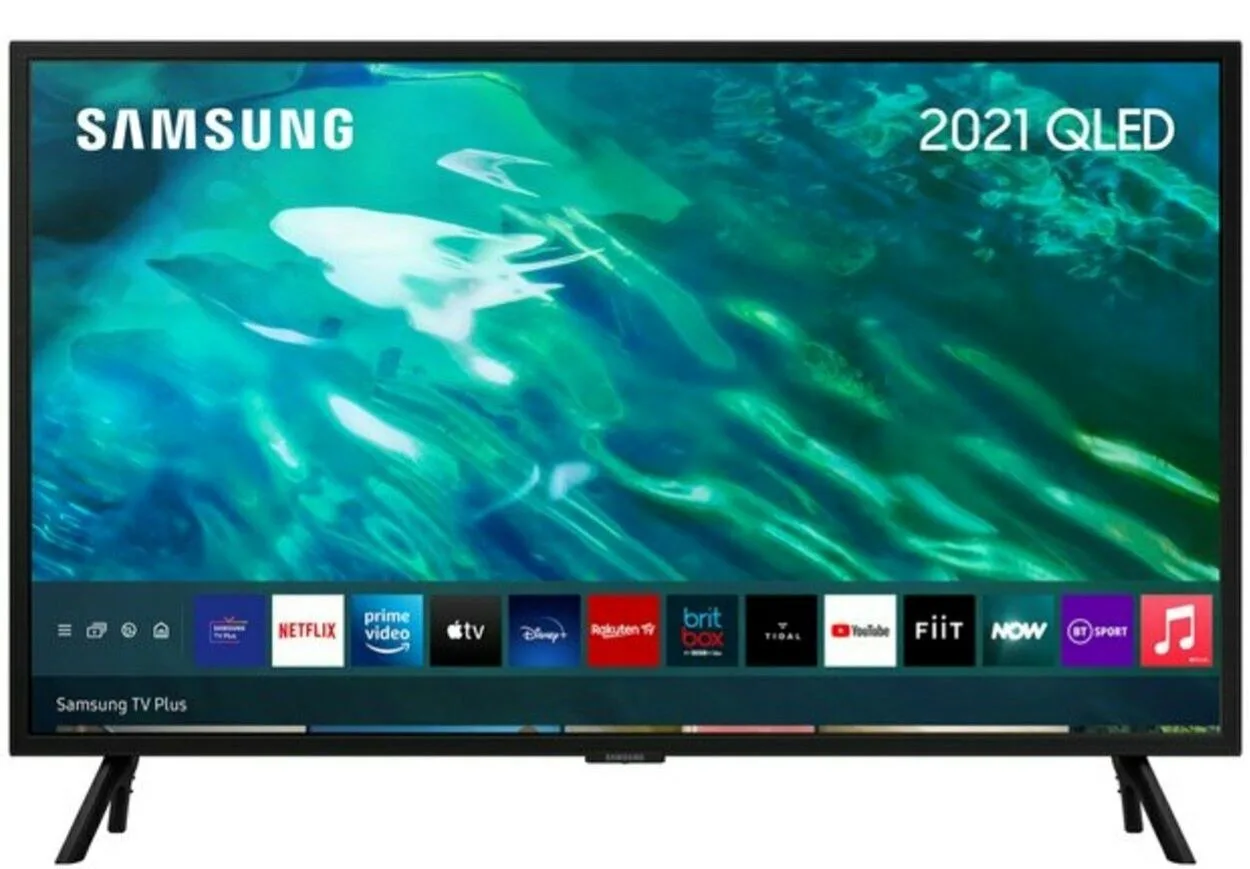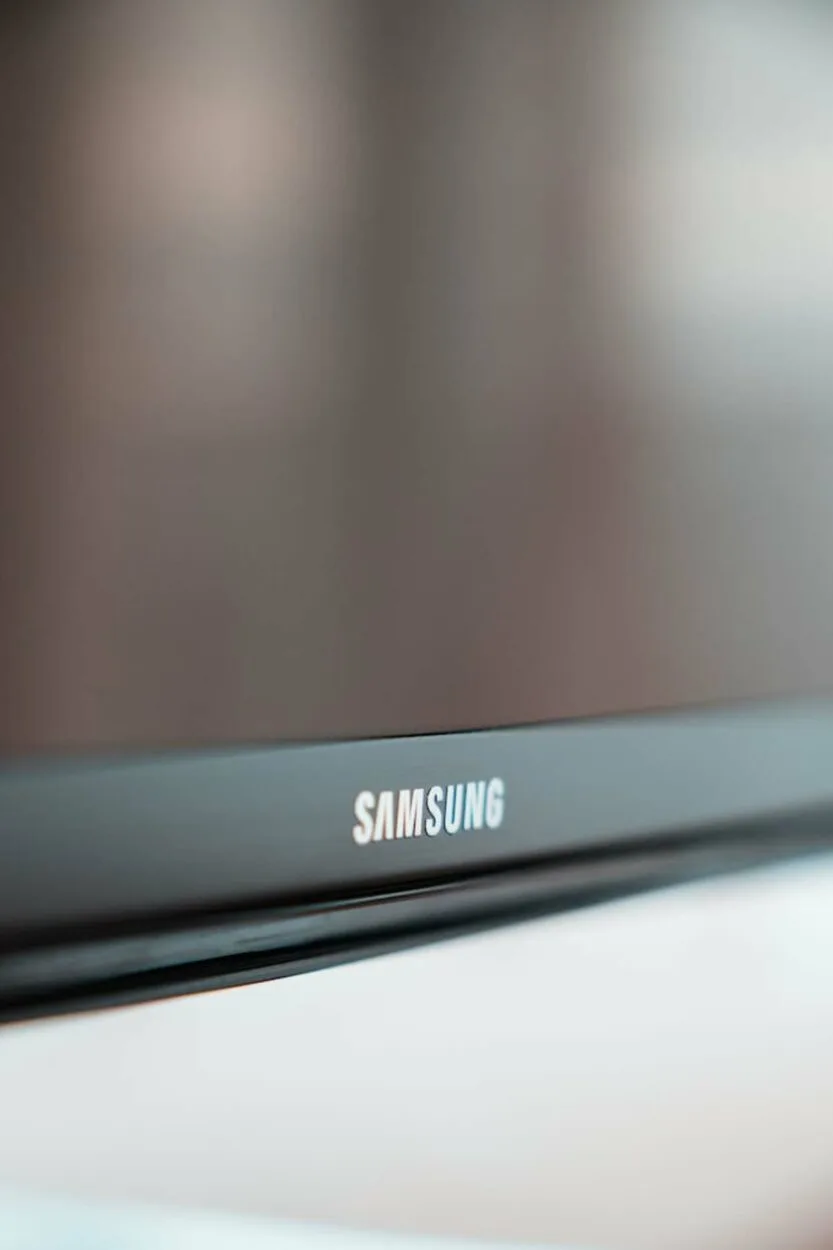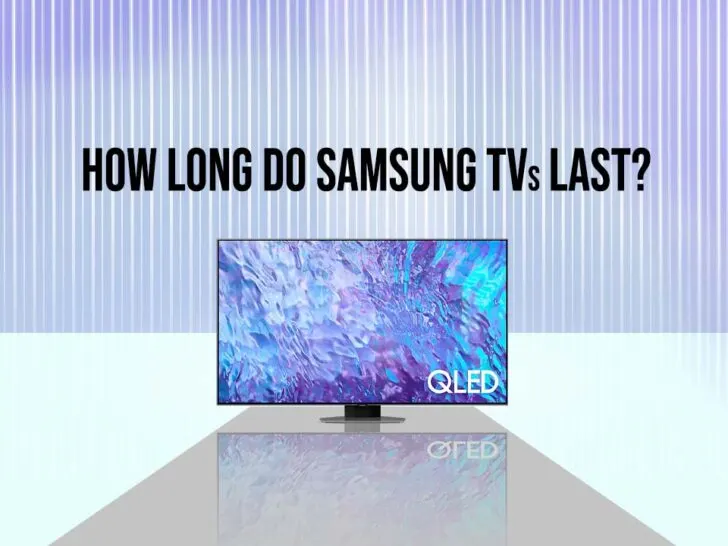Short Answer: Samsung TVs can last between 4 to 8 years depending on usage.
Samsung has built a strong reputation for producing high-quality electronics, including TVs. The brand is known for its commitment to excellence and reliability, which contributes to the perception that Samsung TVs are built to last.
It’s wise to perform a cost-benefit analysis before purchasing a new television. You get what you pay for, as the adage goes. Therefore, if you buy a cheaper TV, you can anticipate it to have a shorter life than some more expensive ones.
It can be challenging to find the ideal TV. There are numerous brands to pick from, and they all have distinctive features. Given that various manufacturers produce TVs with varying prices and quality, it might be difficult to figure out whether a certain TV brand produces long-lasting TVs.
If you want to know more, then keep on reading.
By continuing to use this website you agree to our Terms of Use. If you don't agree to our Terms, you are not allowed to continue using this website.
How long will a Samsung TV last?
The lifespan of a Samsung TV is roughly 4 to 8 years.
This estimate is based on general usage patterns and assumes that the TV is well-maintained and not subjected to excessive wear and tear.
In addition, it may last longer if you don’t use it much or when the picture is not turned to maximum brightness during screen time. Also, proper maintenance is another factor that is going to affect the longevity of your Samsung TV.
In other words, if you just try to use your Samsung TV lightly, it should last longer than 8 years.

Are Samsung TVs reliable?
Yes, Samsung TVs are generally reliable.
Samsung TVs are created to have a long lifespan even when they are not used constantly. The dependability and sturdiness of Samsung TVs are undeniable, as they can often endure for many years even with daily usage.
Samsung TVs are constructed using durable materials and undergo rigorous testing to ensure long-lasting performance. The company focuses on manufacturing TVs that can withstand everyday use, including factors like vibrations and handling.
For that reason, Samsung is in the high tier when it comes to reliability and quality. And they aren’t too many brands that can beat Samsung in terms of product quality!
Usage Patterns
How often and how long a TV is used, what content is viewed, and what settings are used can affect its lifespan. TVs that are excessively used or used for extended periods of time may experience more wear and tear, which can shorten their lifespan.
Here’s a table summarizing the different aspects of usage patterns that can affect the lifespan of a Samsung TV:
| Aspect | Explanation |
|---|---|
| Viewing hours | The number of hours the TV is used each day can impact its lifespan. Extended continuous usage may lead to more wear and tear, potentially shortening its lifespan. |
| Content types | Certain content, such as video games or news tickers, involving static images or high brightness levels, can contribute to screen burn-in on OLED TVs. Varying content and avoiding prolonged exposure to static images can help mitigate this risk. |
| Settings adjustments | Using extremely high settings or consistently pushing the TV to its maximum capabilities may strain the components, potentially leading to a shorter lifespan. Optimal settings and avoiding excessive adjustments can help maintain longevity. |
| Power cycling | Certain content, such as video games or news tickers involving static images or high brightness levels, can contribute to screen burn-in on OLED TVs. Varying content and avoiding prolonged exposure to static images can help mitigate this risk. |
| Ambient conditions | TVs placed in dusty or humid environments may be more prone to internal damage, reducing their lifespan. Keeping the TV in a clean, well-ventilated area minimizes dust accumulation and helps maintain optimal operating conditions. |
| Power usage | Power fluctuations or inconsistent voltage levels can potentially damage internal components. Using a stable power source and considering the use of surge protectors protects the TV from power-related issues, extending its lifespan. |
| Remote control usage | Frequent or rough handling of the remote control may affect the TV’s lifespan. Handling it with care and avoiding unnecessary force can help maintain longevity. |
| Cleaning frequency | Regular cleaning of the TV’s exterior and screen prevents dust buildup, maintaining performance and extending its lifespan. Using appropriate cleaning methods and following the manufacturer’s guidelines ensure proper maintenance. |
| Gaming and heavy usage | Gaming or demanding tasks that require high processing power can strain the TV’s components. Moderating the duration and intensity of such activities helps preserve longevity. |
| Parental controls | Implementing parental controls for children or teenagers using the TV helps manage usage patterns and prevents excessive strain or misuse, contributing to a longer lifespan. |
| Scheduled breaks | Giving the TV occasional breaks from continuous usage allows for heat dissipation and reduces strain on internal components, promoting a longer lifespan. |
| Proper ventilation | Ensuring adequate ventilation around the TV is crucial. Blocking vents or placing the TV in a confined space restricts airflow, causing heat buildup and potentially damaging components. Providing ample ventilation helps maintain optimal operating conditions. |

Power Surge Protection
Samsung TVs often have built-in power surge protection. This feature works to protect against sudden voltage spikes and power surges that could harm internal components and decrease the TV’s lifespan.
Technological Advancements
Rapid advancements in TV technology can also impact the lifespan of Samsung TVs. As new features and improved picture quality become available, consumers may choose to upgrade their TVs earlier than expected, even if their current TV is still functional. This trend can reduce the overall lifespan of a TV.
When should I replace my Samsung TV?
Here are key signs to look for when deciding to replace your Samsung TV:
- bad picture quality
- dim screen
- less vibrant colors
- pixels not working
- noticeable image retention
- faulty HDMI ports
- screen burn
Generally speaking, you should consider replacing your Samsung TV when there is a dramatic change in the screen brightness, clarity, and vibrancy that usually happens after years of usage.
The lifespan of a Samsung TV can be influenced by the product’s lifecycle. As technology advances, new TV models with improved features and picture quality are introduced. This can lead to consumers choosing to upgrade their TVs before the end of their natural lifespan to take advantage of these advancements.

How can I make my Samsung TV last longer?
Here are ways to make your Samsung TV or any TV last longer:
- Set the TV to the right brightness and contrast.
- Clean the TV regularly.
- Turn off the device when you’re not using it.
- Use a voltage regulator or surge protector.
- Make sure there is good ventilation in the room where the TV is.
The environment in which a Samsung TV operates can affect its lifespan. Extreme temperatures, high humidity, and exposure to direct sunlight can potentially damage internal components and reduce the TV’s longevity.
Operating the TV within the recommended environmental conditions can help mitigate these risks.
Screen Burn-in
OLED TVs, including some Samsung models, are susceptible to screen burn-in. This phenomenon occurs when static images are displayed for extended periods, causing permanent damage to the screen.
However, Samsung has implemented technologies and measures to minimize the risk of screen burn-in and increase the longevity of their OLED TVs.
Samsung provides warranties for their TVs, which offer repair or replacement services if any issues arise during the specified warranty period. Warranty coverage can provide peace of mind and protect against manufacturing defects that could impact the TV’s lifespan.
FAQs
Can software updates influence the lifespan of a Samsung TV?
Software updates released by Samsung can enhance the performance, compatibility, and security of their TVs. While software updates themselves may not directly impact the lifespan of the TV, they can help ensure the TV remains up-to-date and capable of handling new technologies, potentially extending its usability.
What are the disadvantages of a Samsung smart TV?
I think one of the most obvious disadvantages of the Samsung smart TV is the security risk.
The biggest risk is that hackers might eavesdrop on you while in front of your smart TV. However, that’ll only happen due to faulty manufacturer encryption.
Just to stay on the safe side, do not use your Samsung smart TV for sensitive information such as bank accounts, addresses, and passwords. Lastly, make sure to use the most secure passwords.
What is better, LG or Samsung TV?
I think both brands are excellent for TVs.
If you’re in the market for QLED TVs, Samsung QLED TVs have great picture quality. On the other hand, OLED TVs from LG are the best pick if you prefer a wider viewing angle and a better contrast ratio.
As for the quality of the screen, choosing between LG and Samsung is quite a hard pill to swallow, as both are capable of giving consumers the best viewing experience.
So, whichever you pick, you’re in for an amazing viewing experience!
Conclusion
Samsung TVs are known for their reliability and longevity. While the average lifespan of a Samsung TV is around 4-8 years, several factors can influence its durability. Usage patterns, maintenance practices, environmental conditions, and technological advancements all play a role in determining how long a Samsung TV will last.
By following proper usage patterns, such as moderating viewing hours, avoiding prolonged exposure to static images, and using recommended settings, users can help extend the lifespan of their Samsung TVs. Regular maintenance, including cleaning and proper ventilation, can also contribute to optimal performance and longevity.
Samsung’s commitment to quality is evident through features like built-in power surge protection and software updates, which enhance the TV’s resilience and compatibility with evolving technologies. Additionally, Samsung has implemented measures to minimize the risk of screen burn-in on OLED models, further increasing their lifespan.
While technological advancements may prompt users to upgrade their TVs earlier than expected, Samsung’s brand reputation for producing durable electronics remains intact. With proper care and attention, Samsung TVs can provide many years of immersive viewing experiences.
Ultimately, the lifespan of a Samsung TV is influenced by various factors, and individual experiences may vary. However, with Samsung’s emphasis on quality, durability, and technological innovation, users can have confidence in the long-lasting performance of their Samsung TVs.

